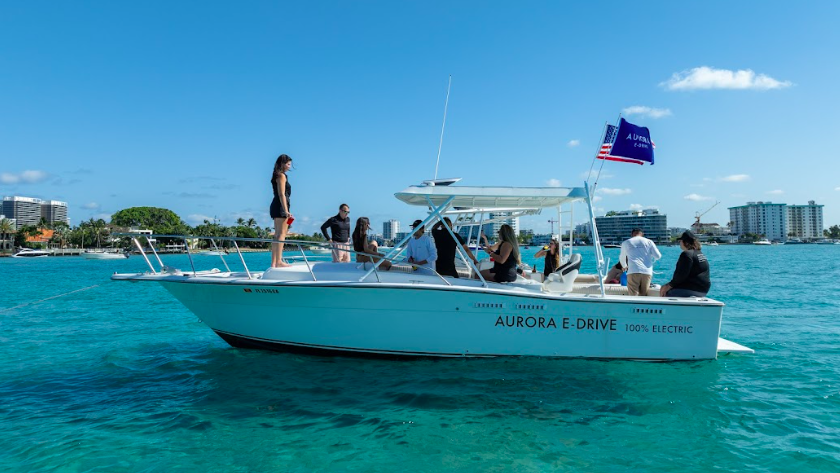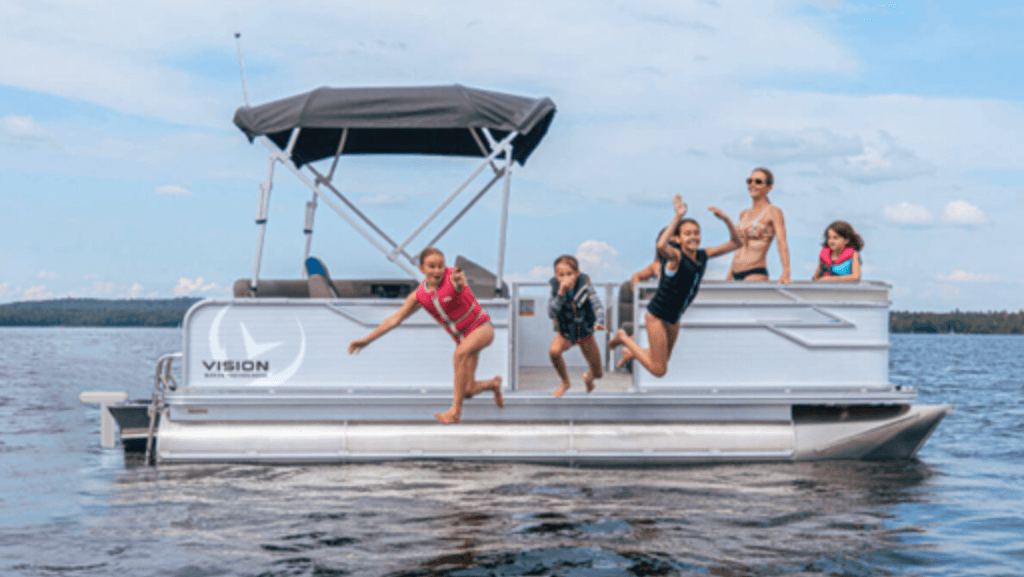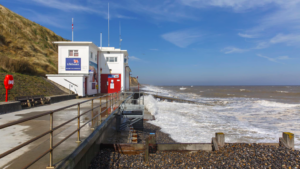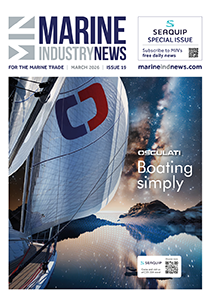E-Force Marine sets timeline for Aurora E30 launch

E-Force Marine is moving from focusing on electric propulsion systems and is now applying its expertise to an entire vessel . . . to make fully electric boats. It’s shared details of the Aurora E30, a 30 foot electric catamaran.
The current plan is for a prototype phase to begin in September 2025, with testing running through November. The boat will be showcased later this year, with production starting in January 2026.
“The reason we are pushing forward with electrification in the marine industry comes down to simple economics – electric boat energy costs are 70-80 per cent lower than those of gas-powered boats (with marina gas at $4.30 per gallon and electricity at $0.12 per kWh),” says says CEO Al Haghayegh. “We have the data to support this from the two boats we converted from ICE to electric. Electric boats also come with significantly lower maintenance costs.”
By integrating its proven e-drive technology with a purpose-built vessel, the company believes it will set new standards in efficiency, sustainability, and usability.
The Aurora E30, boasting a 10 foot beam and a solar canopy, is all about comfortable and practical cruising rather than high speeds. This, E-Force says, makes it ideal for weekend trips, bay cruising, and island hopping.
The fully electric model has an 80 mile range, while an optional hybrid version extends that distance to 190 miles (utilising an onboard generator). Cruising speed is 20 knots with a top speed of 30. Fast-charging means the battery can be fully replenished in two hours. The company’s calculated that ownership expenses are reduced by approximately 80 per cent compared to traditional gasoline powered boats.
“Another key benefit of our zero-emission electric boat is its ability to reduce noise pollution on the water,” says Haghayegh. “This is especially valuable for homeowners with waterfront properties. Even at our top speed of 35mph, the only sound outside the boat is the splash of water, no engine noise.”
The company sees significant potential in remote destinations where there is limited access to traditional fuels.
“The time to transition to electric boats is now. Unlike cars, boats have a much longer lifespan, often 20 years or more. Currently, 94 per cent of watercraft sold in the U.S. are gas-powered, meaning these vessels will continue polluting our waterways for decades,” says Haghayegh.
“”From my understanding, ‘you can drill all you want’, but the oil industry doesn’t like prices dropping below $80 per barrel. Anything lower hurts their balance sheets, prompting oil cartels to cut production to maintain price levels. We may see short-term dips in gas prices, but they never last.”














